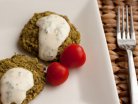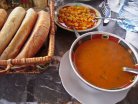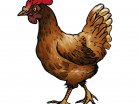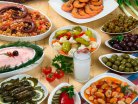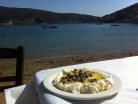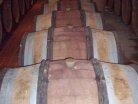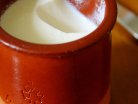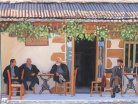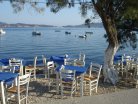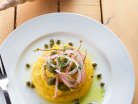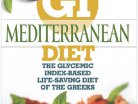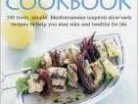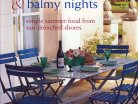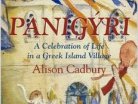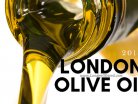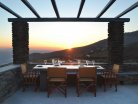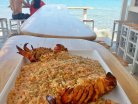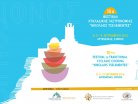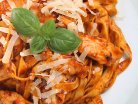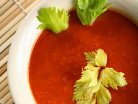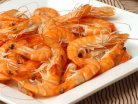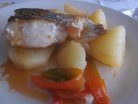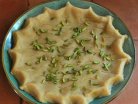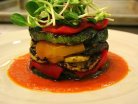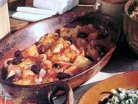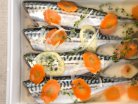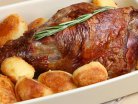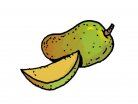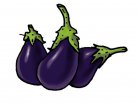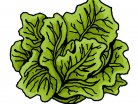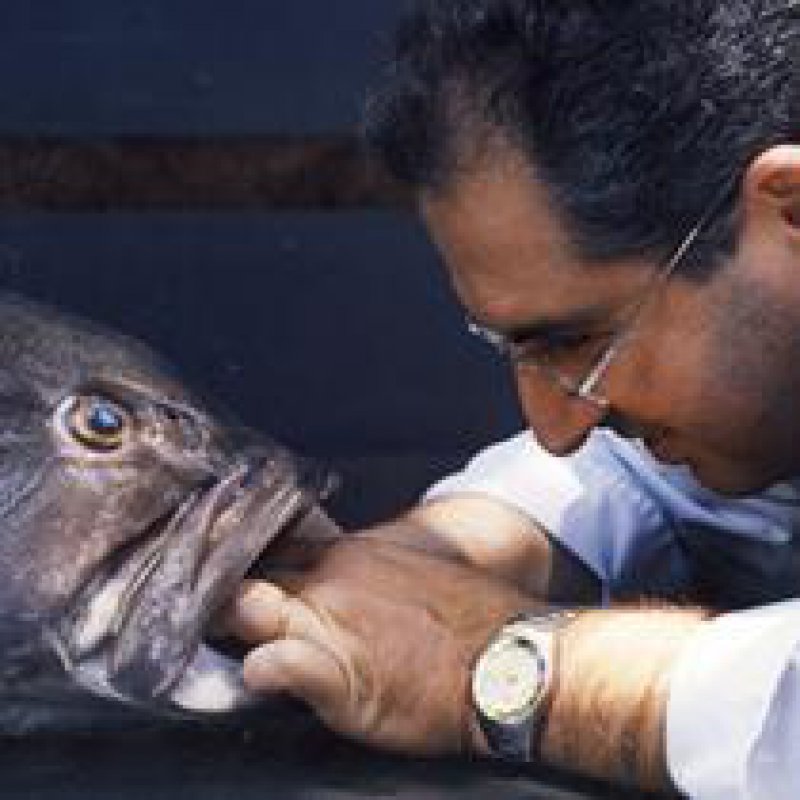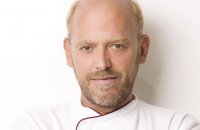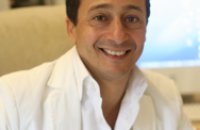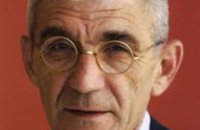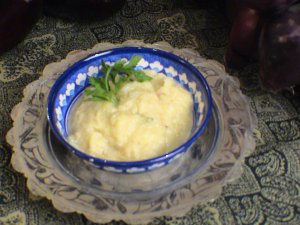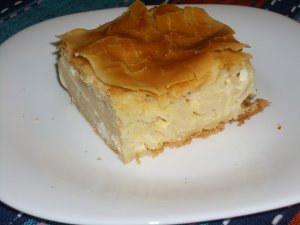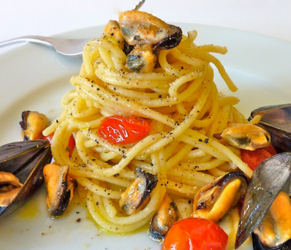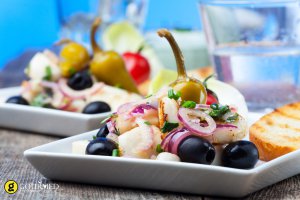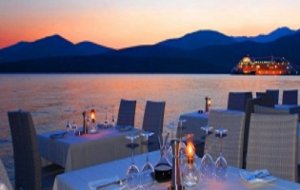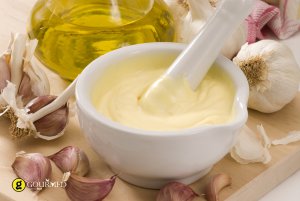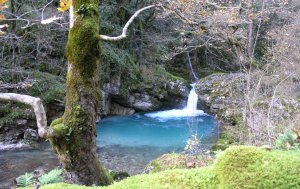From Kranidi to Athens, Luxembourg, Milan, Cuba and Morocco. What materials did you collect during your journey?
I grew up with cooking experiences in times when things were authentic… I watched my grandma making bread up until she was 95, using flour, olive oil and leaven, because they didn’t have any yeast. We all carry with us our descent, our experiences. In my 25 years of cooking, during the first 8 was I lucky to work with foreign chefs and gain good foundations.
What can a chef teach another chef? Do you borrow recipes? Do you keep secrets to yourself?
When someone reaches a certain level, he/she forms a personal style. My style of cooking would be modern, creative, Mediterranean cuisine, Greek taste – with strong sauces – well presented.
How willing are chefs to minimize the cost of a high quality dinner, without diminishing the quality of their raw materials? Why should a night out for dinner be a whole ‘investment’?
Good restaurants in Greece are cheap, bad ones are expensive. Whenever I use truffle, foie gras, deer from Austria, a chef in France that uses the same materials pays 30% less. If I use a good Limoges porcelain, I‘ll have to bring it over from France. Vegetables are 20% cheaper in Italy, than they are here. The bread is our own. If we bought it ready-made, we’d save half a day’s salary. Which restaurant is more expensive? The one that charges €4 for bread and makes it or the one that charges €2, but buys the bread. A good restaurant has higher costs that customer can’t realize easily.
If you had to choose a single recipe from your book “Mediterranean Scent”, which would it be and why? Do you actually remember all your recipes?
I do remember each and every one and no, I couldn’t choose just one. If I had to though, I’d choose a three-star one, where I combine Greek and western elements: Foie Gras Terrine from France with Truffle from Italy and Trikalinos’ Avgotaracho, matched with whiskey from Old Pulteney. It is really a fusion recipe! It is the definition of cooking, as I see it. With my creations I combine heterogeneous materials. I want to create fusion and not confusion.
You say that you have felt the need to write this book after being a cooking teacher for five years. Who are the readers of your book?
This book is a deposit of a part of my work and of my heart. It is not commercially oriented, it is intended for people that want to get involved. Recipes may seem difficult, but all difficult things are a combination of easier ones. All recipes have been actually cooked and they are therefore real. If the readers want to make Louisa foam, they’ll do it.
Do you remember any recipes that failed?
Sure I do! The hardest part is to find a good man to act as guinea pig. It can take as long as six months before you reach perfection… Lower temperatures, more time…
When does a chef take off the buttoned white blouse?
Probably never. Everyone probably worries about when the end of his/her career will be. But the more I grow older, the more busy I get. And the more I’m absent from the production field, the more I lose control. Nevertheless, I believe that a chef is always a chef. I don’t see it as a job. What I do is what I am.

